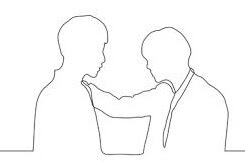Understanding conflict dynamics
1) Not all conflicts are negative consequences
The moment we think about conflict, we associate it with negative emotions. Not necessarily; all the differences are negative. Some disputes will end up with improved performance and relationships.
2) Conflict happens where we have more interdependent relationships
Generally, we do not bother much about the differences with whom we interact occasionally. For example, conflict with a potential customer on the solutions approach, and we walk away without much regret.
Whereas we do get disturbed about the differences that arise with a person with whom we frequently interact—for example, conflict with existing customers or with partners or colleagues on the service quality. There, we struggle to balance between performance and relationship.
When we are aware of the need for balancing with more dependant networks, that will enhance our responsibility in handling the differences with the proper mindset and methods.
3) Being aware of Feelings when dealing with the differences
Most likely, we have feelings around
a) How do I feel about the outcome
b) How do i feel about me
c) how do i feel about the proceedings
d) how do i feel about the relationship with others
When you are mindful of those feelings at that moment, either you can influence the proceedings or feel good about yourself, or you can treat others respectfully during arguments and be empathetic about others or sure about your expectation.
4) Conflict and Power :
Differences arise mainly due to POWER in an organizational setup. Power means the ability to get things done. The perception of power with relating to others makes a difference in the way we manage conflicts.

Let us discuss some of the interesting aspects of Power next week.








